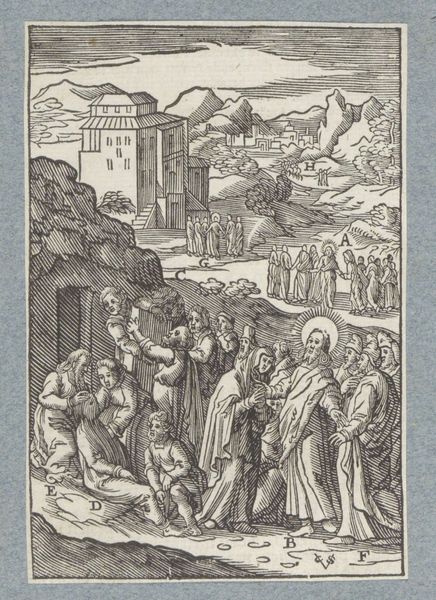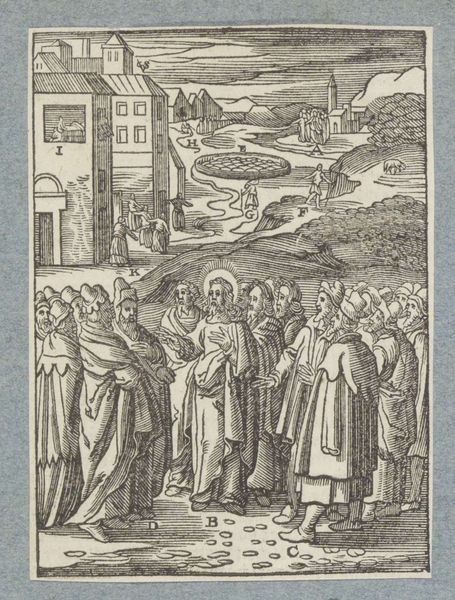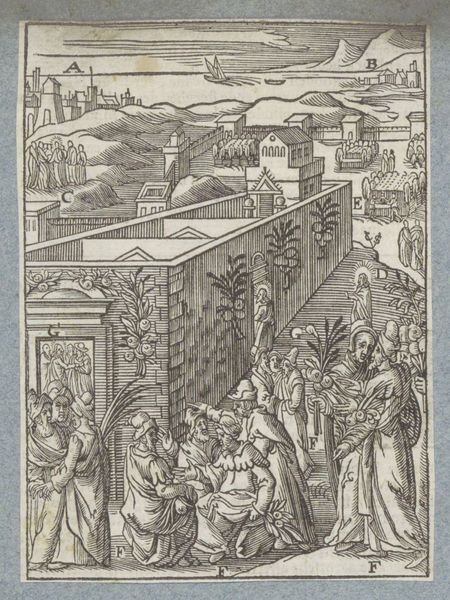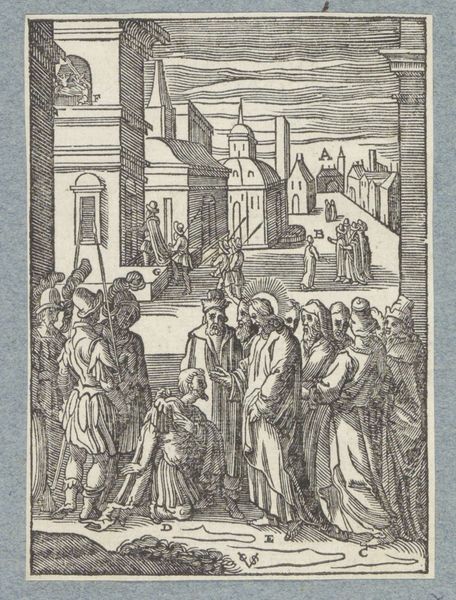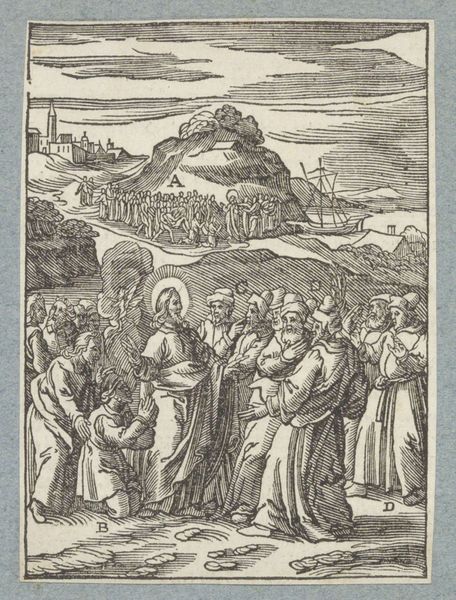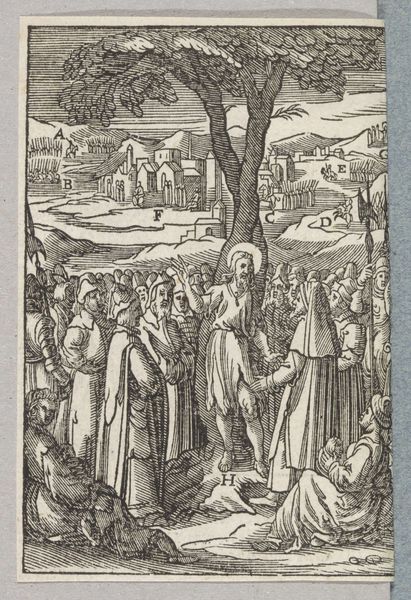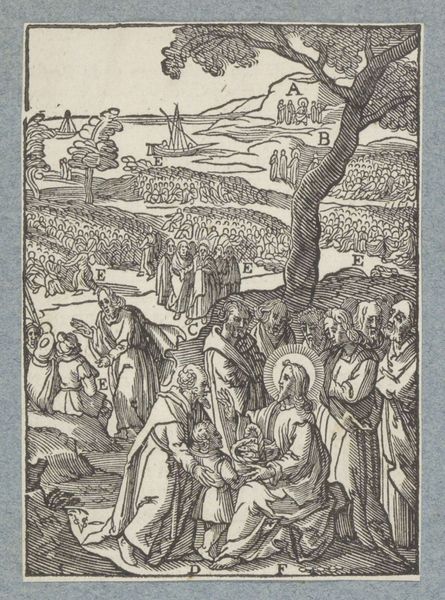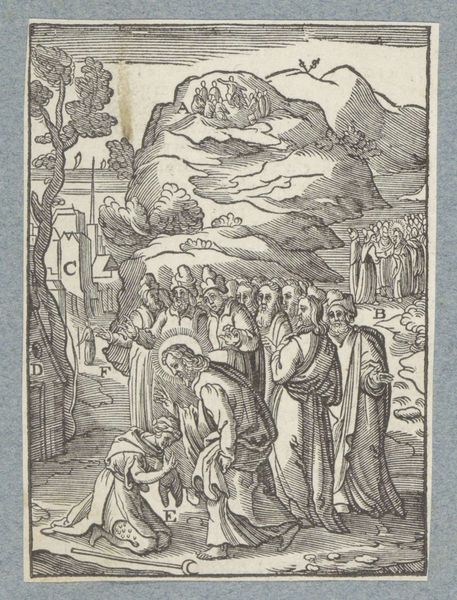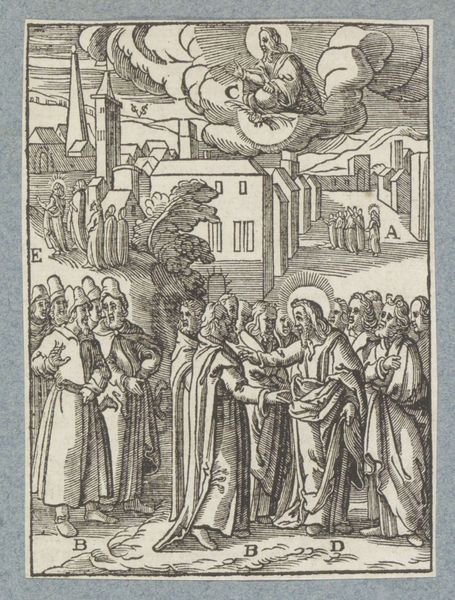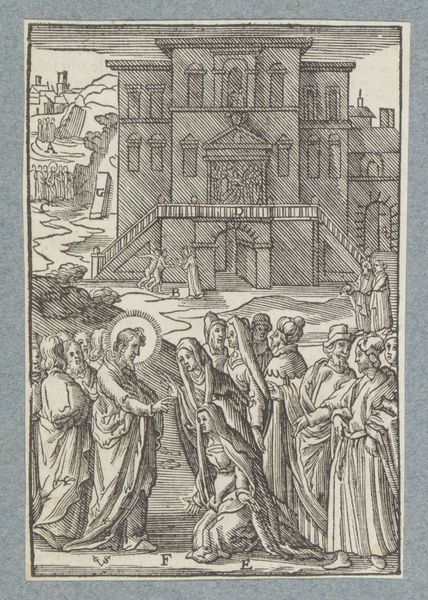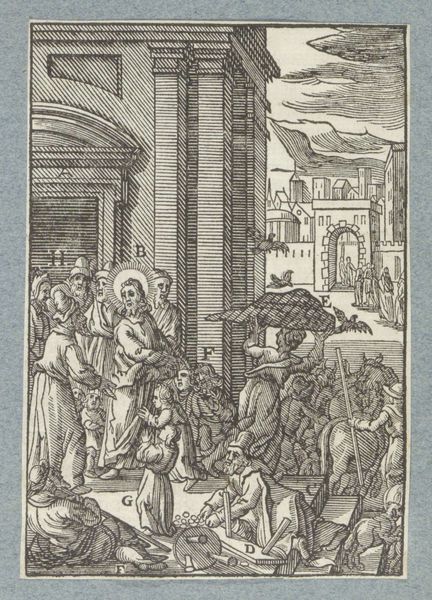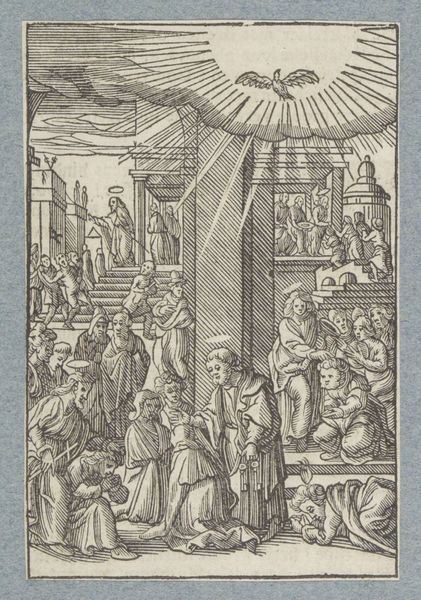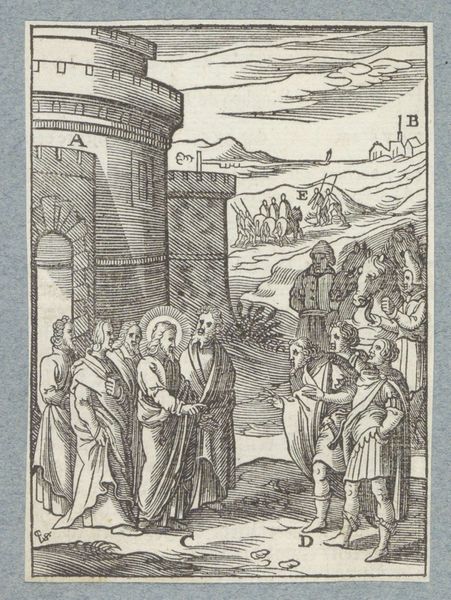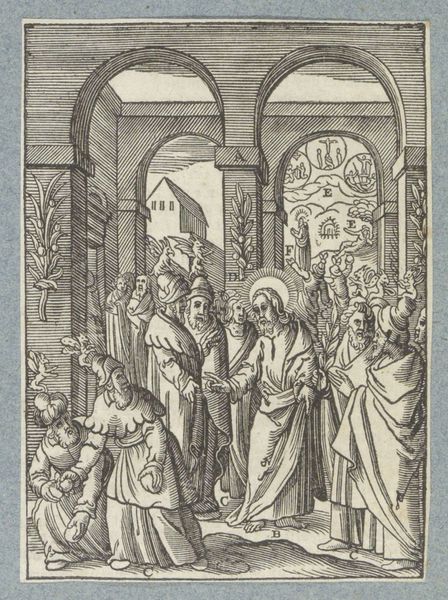
Christus praat tegen de mannen gestuurd om hem te arresteren 1629
0:00
0:00
christoffelvaniisichem
Rijksmuseum
drawing, ink, engraving
#
drawing
#
narrative-art
#
baroque
#
pen sketch
#
pencil sketch
#
figuration
#
ink
#
pen work
#
history-painting
#
engraving
Dimensions: height 101 mm, width 73 mm
Copyright: Rijks Museum: Open Domain
Editor: We’re looking at Christoffel van Sichem's "Christus praat tegen de mannen gestuurd om hem te arresteren" from 1629, currently held at the Rijksmuseum. It’s an engraving filled with tiny figures in a vast landscape. The mood feels quite tense, a kind of silent standoff. What's your interpretation of this piece, considering its historical context? Curator: Well, seen through the lens of art's public role at the time, engravings like these served as a crucial medium for disseminating biblical stories to a wide audience. Think about it: this image brings religious narratives into homes, impacting social behaviors and reinforcing religious ideologies. Editor: That’s interesting. I hadn’t thought about how accessible this would make the story. How does that play into the image itself? Curator: Notice how the figures are meticulously rendered but presented somewhat generically. It prioritizes legibility across a broad audience, right? It’s not about individual character portraits. Sichem's choice reflects a calculated decision to leverage familiar visual cues for the social impact. Who were the primary consumers of these images? Editor: Probably a wide mix, from wealthy patrons to those purchasing single sheets? Curator: Precisely. The baroque style itself, while ornamental, works here to visually underscore the weight of the narrative. Do you think the architectural and background details are included for simple aesthetics? Editor: Not really, they provide this historical anchor. Maybe trying to make the narrative believable and part of everyday life? Curator: Exactly! The placement within this setting suggests that Christian morals and history should ideally pervade daily life. Thank you for raising it: analyzing from the perspective of cultural accessibility really changed the way I view the artwork.
Comments
No comments
Be the first to comment and join the conversation on the ultimate creative platform.
